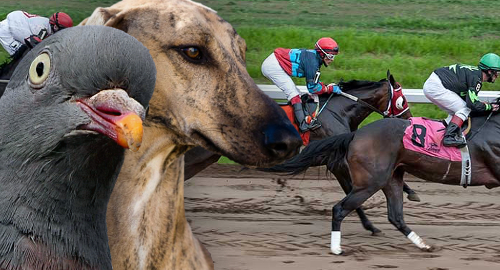 Denmark’s licensed online gambling operators looking to take wagers on local horse races must now pay a hefty premium for the privilege.
Denmark’s licensed online gambling operators looking to take wagers on local horse races must now pay a hefty premium for the privilege.
On January 1, Denmark’s Spillemyndigheden regulatory agency officially authorized its online and land-based gambling licensees to begin taking wagers on animal-based races, be they horse, dog or pigeon. Oh, and it also okayed online bingo, which we’re assuming wasn’t a reference to the dog from that B-I-N-G-O song.
On Wednesday, the regulator reminded its licensees that bets on Danish horse races are taxed differently than other events. While most products involve a tax on operators’ betting revenue, operators must pay a ‘special contribution’ amounting to 8% of horse wagering turnover.
The new rules apply to races at Danish tracks, but not to Danish horses racing abroad. Should a punter combine a Danish horseracing wager with other racing bets, “the special contribution of the players entire contribution must be paid,” regardless of where the other races take place.
The special contribution also applies to both sides of a Danish racing exchange wager, and the regulator’s advisory details how the special contribution applies to a variety of other exotic betting combinations, including parlays that involve non-racing events such as football.
Interestingly, there’s no indication that this new special contribution applies to the other two forms of recently approved animal contests, raising the question of why horseracing is always treated as if those animals saved everybody’s life in Nam or something, while dogs and pigeons get the Rodney Dangerfield treatment.
Other major gambling markets require operators to kick back some of their race betting revenue to the sport, but Denmark’s insistence on a profit-killing turnover-based levy won’t do much to encourage reluctant operators to add horseracing to their product mix.
And hey, if Danish regulators really want to artificially prop up a dying industry, they should start subsidizing their online poker licensees, who have seen their revenue fall by one-third since 2014 and endured their fourth consecutive quarter of falling revenue in December.